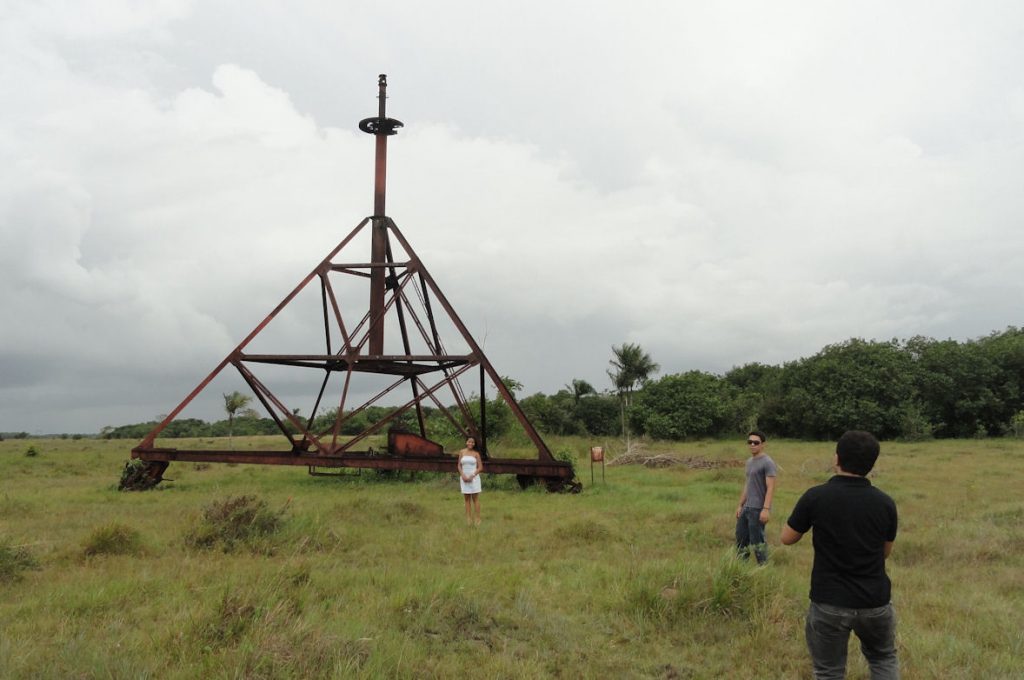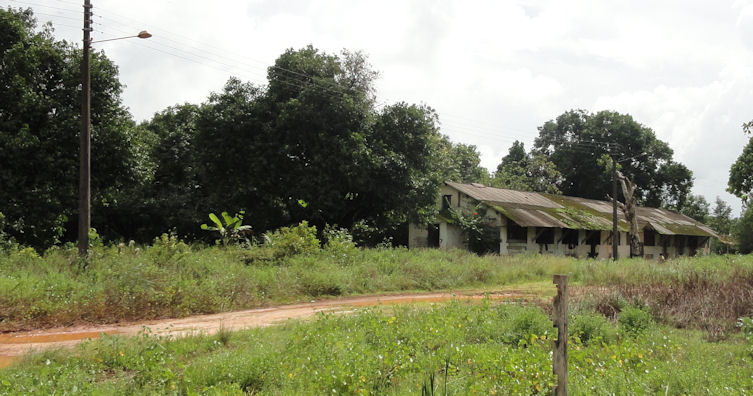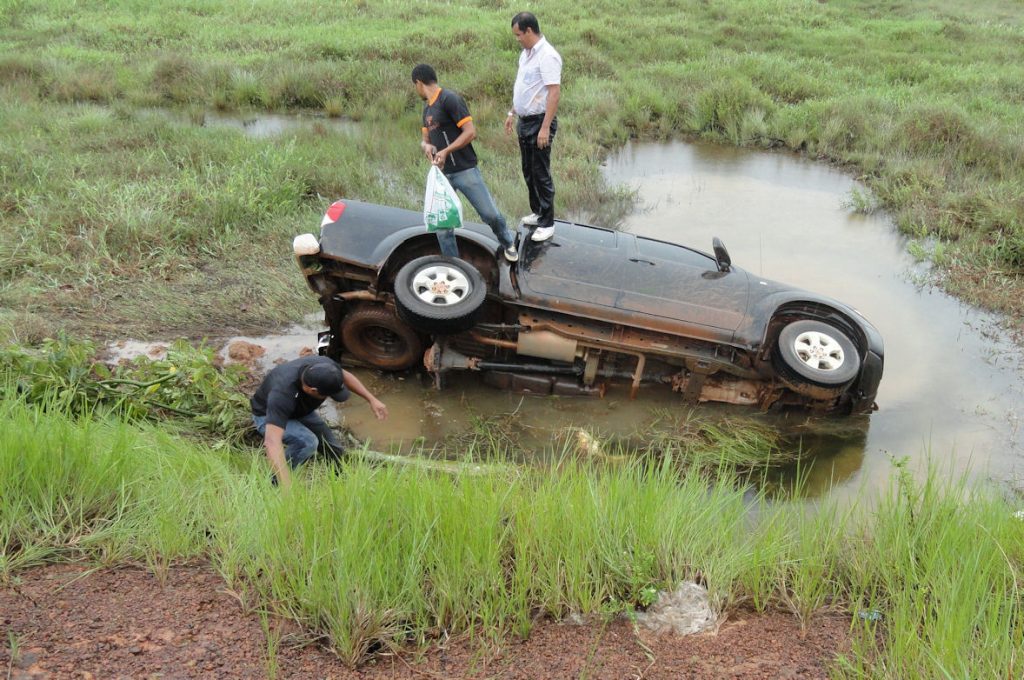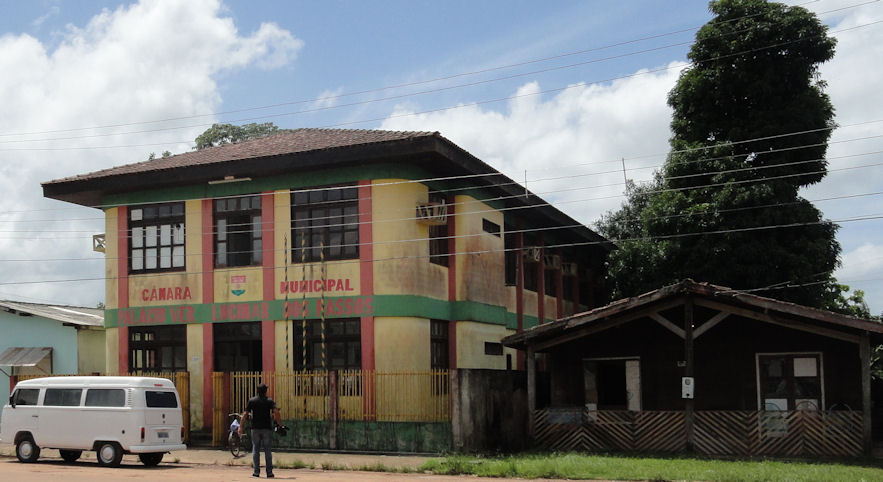
One of the senators from the state of Amapá has been asking us to visit the site of a World War II American airbase, so we did. According the locals, we are the first official Americans to visit the base since we vacated it after World War II. There is not much left except a rusting tower where they use to tie up blimps, some decaying buildings and the remains of the runway. But the visit was certainly worth the effort as it made the senator very happy and seemed to delight the local population. The mayor came along on this visit as did a couple dozen others.

We were also told that there was wreckage of a World War II American plane in the jungle of Amapá and that the bodies of American airmen killed in the crash were buried nearby by the people that found them many years ago. This is something we will investigate. If it is true, we will certainly want to bring those men home. We need to know if this is just a story or the truth.

It took us more than three hours to get from the capital city of Macapá to the municipality of Amapá. Amapá gave its name to the state, but it is no longer the capital. It is really not much more than a village, connected to the world only by a dirt road. The airbase is nine kilometers beyond that on an even worse dirt road. Inaccessible is the word you would use to describe it. One of the vehicles in our convoy hit a slippery patch and went into the ditch. Nobody was hurt, but it made us late for our next appointments and provided a spectacular picture that you can see above. Below is the municipal building.

Nevertheless, the drive was interesting. As the senator described and as we saw, Amapá has five distinct biomes. There is dry forest, wet forest, cerrado, marsh & campo (grassland). The state is not that big, so it is surprising to see that much diversity.
Much of the cerrado near the road is given over to eucalyptus plantations; I understand there are 135,000 acres. They were once owned by international paper, but were sold to a alliance of two Japanese firms – Marubeni Corp. and Nippon Papers Industries. I was told that there are no eucalyptus plantations not owned by them in the state. They chip the trees and sell the chips but do not process them further. The eucalyptus are ready to harvest in six years. Amazing.
